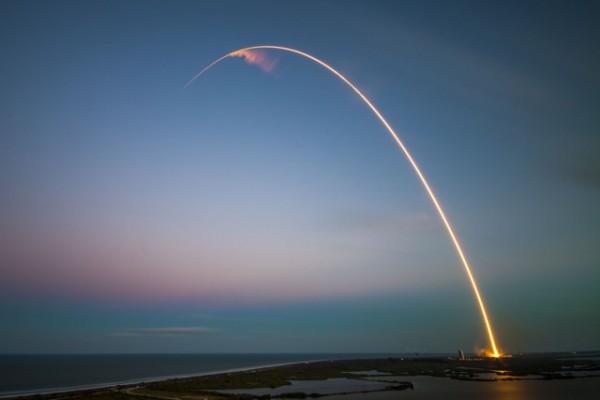By Ana Verayo, | January 25, 2017

SES-9 spacecraft now in Geostationary Transfer Orbit, 40,600 km in altitude.
SpaceX's next highly anticipated launch is scheduled for Tuesday, January 30. This particular mission will be different from past Falcon 9 launches as Elon Musk will use an expendable, regular rocket and will not attempt another rocket landing.
Like Us on Facebook
This also marks the first time that SpaceX will use normal rockets as the private space company has been experimenting with reusable rockets since early 2015.
The first successful rocket landing was accomplished on December 2015, and every SpaceX launch since then included a remote rocket landing by sea, on a floating platform or a drone ship. Out of the 10 attempts, seven of them were successful landings.
However, in this upcoming mission, SpaceX will be launching a communication satellite known as EchoStar 23, not in the usual lower Earth orbit, but in a geostationary transfer orbit with a highly elliptical path of 22,000 miles above the surface of Earth. In comparison, the International Space Station is hovering just around 200 miles above the planet.
A Falcon 9 reusable rocket simply would not cut it for this launch, as this type of altitude will require high speeds and velocity which will need a massive amount of propellant fuel during the launch. EchoStar 23 also weighs more than 12,000 pounds making it heavier than other satellites and will need this much propellant to be placed into orbit.
Also, there will not be enough propellant left for a rocket landing when it heads back to Earth from this extreme altitude. Normally, during a reusable rocket landing, the propellant left will be used to control the rocket to touchdown vertically or up right on a flat surface. Also, different kinds of propellants are used for different landings like across the sea or on a launch pad, depending on the weight of its cargo. For Echo Star 23, there is not enough propellant for a reusable rocket to return to Earth or make any landing.
-
Use of Coronavirus Pandemic Drones Raises Privacy Concerns: Drones Spread Fear, Local Officials Say

-
Coronavirus Hampers The Delivery Of Lockheed Martin F-35 Stealth Fighters For 2020

-
Instagram Speeds Up Plans to Add Account Memorialization Feature Due to COVID-19 Deaths

-
NASA: Perseverance Plans to Bring 'Mars Rock' to Earth in 2031

-
600 Dead And 3,000 In The Hospital as Iranians Believed Drinking High-Concentrations of Alcohol Can Cure The Coronavirus

-
600 Dead And 3,000 In The Hospital as Iranians Believed Drinking High-Concentrations of Alcohol Can Cure The Coronavirus

-
COVID-19: Doctors, Nurses Use Virtual Reality to Learn New Skills in Treating Coronavirus Patients







